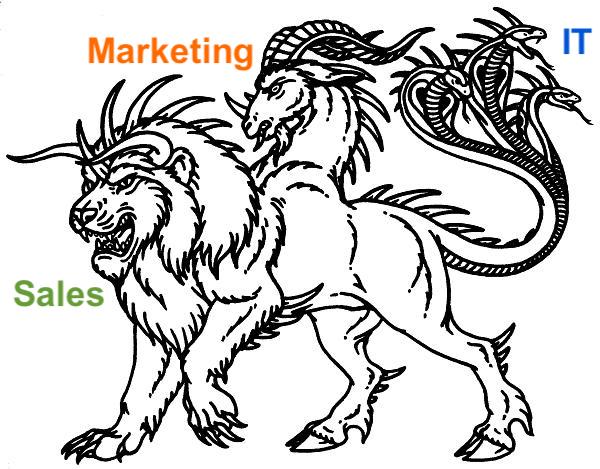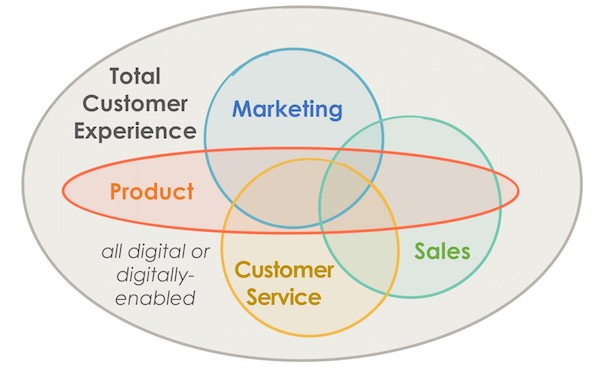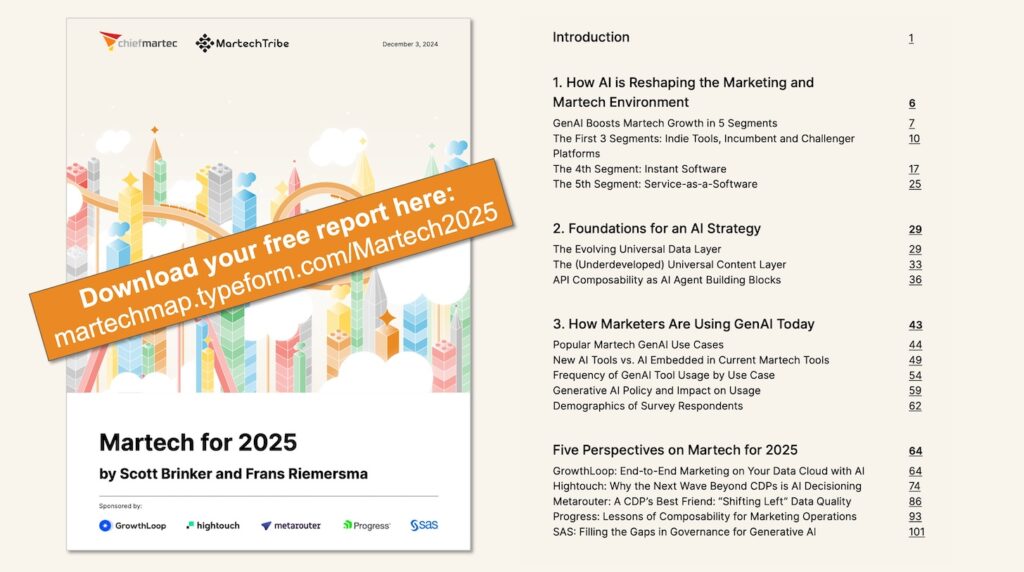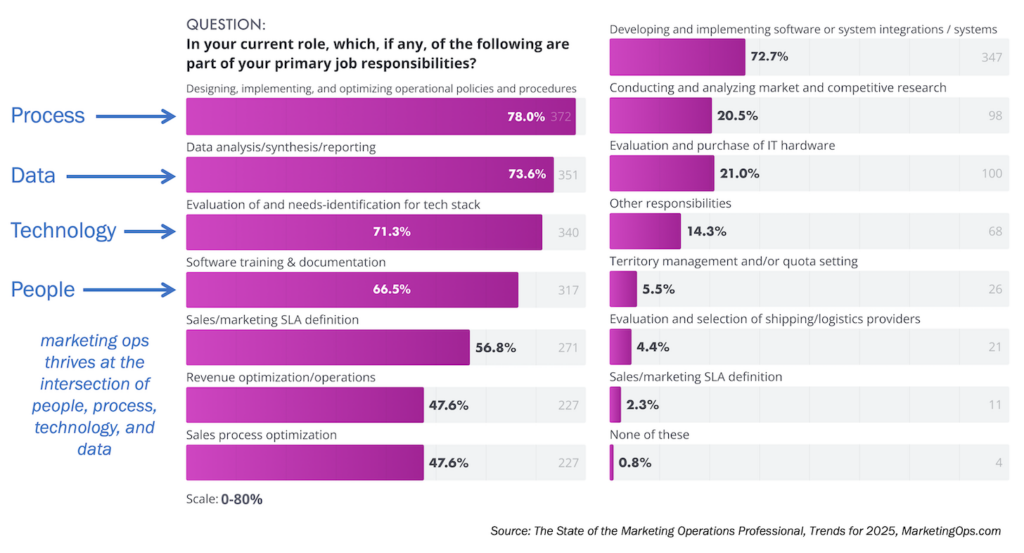
I’ve grown to dislike the label “unicorn” in martech.
In the early years of the marketing technology revolution, marketing technologists — hybrid professionals who applied technical skills in a marketing context — were sometimes called unicorns. Partly because they brought seemingly magical capabilities to marketing. But mostly because finding the perfect blend of marketing and technology talent was incredibly rare.
“Oh, you’re looking for a unicorn,” was HR’s way of saying, “Good luck, Don Quixote.”
Today, the supply problem has eased a little bit. There are now tens of thousands of bona fide marketing technologists in the world, and it’s become a recognized profession. They’re not so rare anymore, and that’s a good thing.
Yet you still hear the term unicorn bandied about. Here’s why that’s a deceptive label.
Debunking the Martech Unicorn Myth

The big reason the “unicorn” moniker doesn’t sit well with me anymore is that unicorns are, well, just too damn conceptually perfect.
The expectation is unrealistic.
Most hybrid professionals have a rather messy career background — they’ve built websites or business plans, done sales or product development, studied engineering or the arts, learned finance or SQL, become self-taught designers or programmers, etc. There’s a high degree of variance in their experience and education.
(This drives HR recruiters absolutely bonkers, because these kinds of candidates are hard to pattern match with a simple heuristic.)
As a result, the strength of their different skills and how they’ve blended them together also varies significantly. This is actually a feature, not a bug. That high variance in experience and skills enables these hybrids to bring fresh and imaginative ideas to an organization, to reveal insights from different points of view.
But then how do you determine which of those variants is the perfect one?
Even if you didn’t consider all that wondrous variety a plus — which would be like buying a cupcake, but not eating the frosting — you’d have a hard time defining a cookie-cutter set of martech job requirements that every hiring manager would agree on.
The range of skills associated with martech roles themselves are insanely diverse. Just consider the kaleidoscope of technologies across the full marketing technology landscape, and you can appreciate the jaw-dropping extent of different kinds of expertise that marketing technologists can be asked to bring to the table.
On top of that, you mix in requirements for a candidate’s marketing and management skills, which come in a rainbow of Technicolor flavors, and there are more possible combinations than atoms in the universe.

Now, that’s not to say it’s impossible to hire a great marketing technologist.
But if you insist on the martech incarnation of Vitruvian Man, you’re going to miss out on the amazing in the quest for the perfect.
There is no universal unicorn template.
And even if there were one today, let’s face it: it would be out of date by next year. The marketing industry — heck, the entire digital world — continues to evolve at a breakneck pace. See Martec’s Law.
The best marketing technologists continually learn and experiment, driven by their curiosity to explore new ideas and rethink old ones. Their adaptability is far more important than a theoretically perfect combination of skills at a particular moment in time. They’re more of a shape-shifting lycanthrope (who, ironically, are skeptical of “silver bullet” solutions to hard problems).
Okay, that’s the end of my unicorn rant. I’d like to propose a different metaphor.
Instead of Unicorns, Recruit and Develop “Chimeras”

A chimera is a mythical Greek creature with the head of a lion, the body of a goat, and the tail of a dragon.
And I think this is a much better metaphor for the kind of hybrid talent we need in marketing and business today.
Now, some of you might point out that this is yet another fantastical beast that doesn’t exist.
Indeed, the word “chimerical” actually means “a thing that is hoped or wished for but is in fact illusory or impossible to achieve.”
So, yeah, that’s not ideal as a rallying cry for important changes in the real world.
But if we look past the imaginary aspect of things — hey, we did it with unicorns — what makes chimeras a more, um, realistic metaphor for hybrid professionals is that they’re not perfectly conceived. A lion, a goat, and a dragon are just jammed together in one. It’s kind of messy.
Yet that complexity better reflects real hybrid professionals such as marketing technologists. They’ve got a fascinating mix of talents and experiences. But when you draw their career paths on a white board, they don’t evoke the perfectly beautiful shape of the unicorn. Instead, you can’t help but tilt your head and remark, “Well, that’s an intriguingly strange combination.”
We need more of those “strange” combinations. Because that’s where the world is headed.
Disciplines across business are intersecting, overlapping, and converging at an incredible rate. This is the essence of digital transformation: harnessing technology to connect and orchestrate customer experiences across marketing, sales, customer service, product, operations — the whole enterprise.

In this Great Convergence, hybrids who bring gifts of knowledge and wisdom from several different disciplines together can serve as guides for the rest of the organization, leading us from the Old World of rigid, hierarchical silos to the New World of a fluid, networked digital fabric.
They can be translators, teachers, and ambassadors. They can connect the dots between cross-departmental operations that on the surface seem unrelated but in truth are deeply entangled. They can identify and correct misaligned processes, metrics, and incentives. They can help find globally optimal solutions where previously suboptimal, local maximums constrained what an organization could achieve.
This isn’t limited to marketing technologists either. Almost any fusion of marketing with other disciplines produces powerful combinations:
- marketing and IT/software development (“marketing technologists”)
- marketing, IT, and product (“growth hackers”)
- marketing, sales, and IT (“revenue technologists” or “revenue operations”)
- marketing, sales, customer service, and IT (“customer operations”)
- marketing, customer service, IT, and legal (“chief privacy officer”)
- marketing and finance (“your best friend during budget season”)
These cross-disciplinary superpowers aren’t only for marketing either. For example, sales tech and sales operations bring sales, IT, operations, and finance together.
Combinatorial innovation in business springs from innovative combinations of talent.
We can seek out these hybrids in our hiring. We can help create them by encouraging moves between and collaborations across departments. But most of all, we should celebrate them.
They’re not perfect unicorns. But they are fantastic creatures.
P.S. Like the concept, but not crazy about the chimera metaphor? Wikipedia has a long list of mythological hybrid creatures to choose from — feel free to nominate your favorite.
P.P.S. Had enough of these fantasy creatures and want a real-world image of a hybrid animal you can use as a metaphor? Fair enough. I leave you with a picture of a zonkey — just one of many kinds of zebroid. (Who knew zebras were so indiscriminate at their local watering hole?)

P.P.S. Want to meet other chimeras? And learn the tricks of the trade of leading marketing technology hybrids? Then plan to come to MarTech East October 1-3 in Boston. We promise, these fantastic creatures don’t bite.



I love this post, Scott. This reminded of that book titled The Medici Effect that says that exposure to different influences is one of the best ways to set the right backdrop for creativity. Just as important the author suggests that Innovation is just creativity that happened to work in a business context.
So if you’re looking to be an innovative company, invest in creativity – and the folks with those seemingly unfocused marketing, tech, legal, etc… job histories, to maximize the range of ideas and experiences at your disposal!
I agreed with your thoughts.
Very true Scott. The generalization for any career is to be that Chimera: the intersection of 3-4 unique skills or skillsets as you pictured. Whether it is marketing or sales, or engineering, having domain expertise, functional expertise, and people expertise will keep one employed for much longer than those who don’t learn or grow past one area.
Love the idea. But lets not confuse this with someone who says they’re an expert in 6 different marketing channels, but does them all with mediocrity. I see so many companies that want such a plethora of skills sets, that no one person could possibly be an expert at any of those channels. Their purple squirrels really don’t exist.
Thank you for this post, Scott. A great read and I couldn’t agree more. I’ve found success in my career from going broad in a subject and then deep for a time while embedded on the client side, agency side, at a retailer, at a network, at a brand, at a Fortune 500, at a start-up – it all seems haphazard but I’m not sure how else you could learn it all. Perhaps it’s the modern day version of a hotel leadership program where you’re being hired to be the VP of Finance but they hand you an apron on your first day and tell you to report to the kitchen for a week. You learn everyone’s job, understand their wants/needs/goals while building character and, perhaps most importantly, nurture some industrial-grade empathy.
That last part is important since new tech-stack Adoption appears to be where IT leaders fail most spectacularly. IMO It’s less important to be an expert in every system but you better understand how to bring measurable value – consistently. That takes a village.
A great thought-provoker, Rob.
We are talking about another kind of unicorn in this article, but I sense that it underplays an important trend: The convergence of Sales, Marketing and Customer Experience, i.e. Smarketing.
Still, it is a good read. #customerexperience #sales #smarketing
#marketing
Thanks, Peter. My comment is about the “origin story” of this marketing/sales/CX chimera. Jayson, I self-identify as well since I’m currently the VP of Consumer Engagement which encompasses exactly those three business units. Maybe I should ask to have it changed to VP of Smarketing! That will keep them guessing. lol
I totally relate to the “chimera” reference. Even harder is when you self-identity as one and then try to use your own journey to find others with similar or complimentary skill sets. To your point, there is no silver bullet skill set that you can use to find these folks and the hunt takes some time but there are some interesting perspectives out there from those who have not walked the traditional marketing or engineering paths.